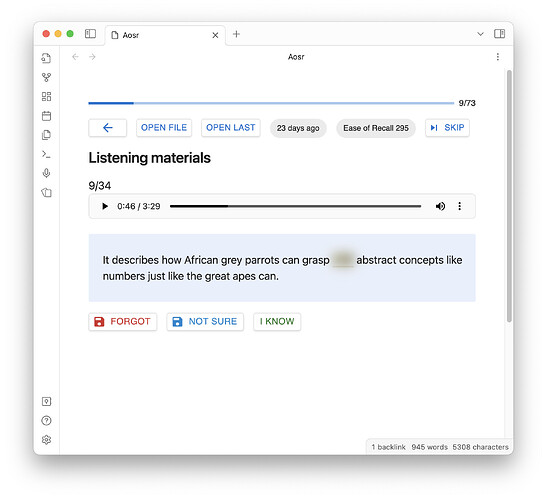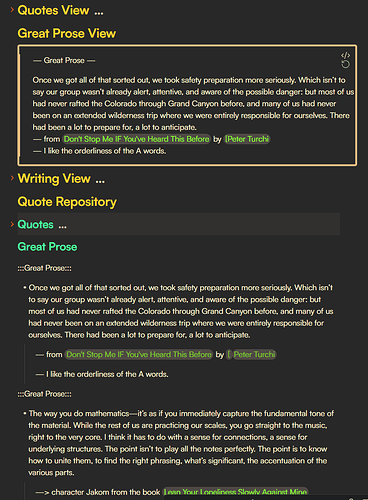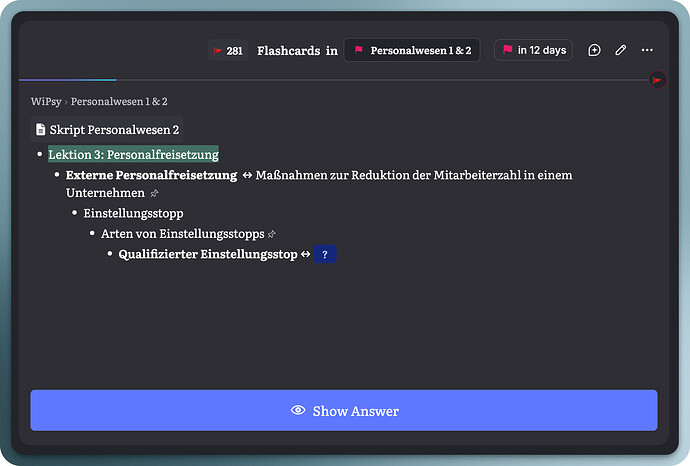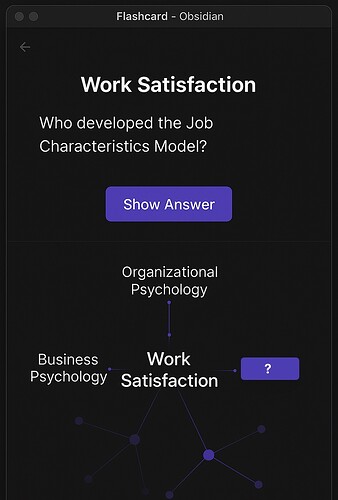Dear Obsidian Development Team,
I trust this message finds you well. I am a committed user of Obsidian and have found immense value in the power and flexibility of your platform. Thank you for your continued commitment to innovation and for your dedication to enhancing user experience through regular updates and upgrades.
Today, I am writing to propose a feature enhancement that, I believe, could greatly benefit users in their pursuit of knowledge. I would like to suggest the incorporation of a native flashcard feature into the Obsidian app, akin to the functionality provided by platforms such as Remnote.
Flashcards have proven to be a simple yet extremely powerful tool for knowledge acquisition and retention. They are particularly useful for breaking down complex subjects into smaller, more digestible units of information, and for enabling repetitive and active recall, both of which are key to long-term memory formation. As such, a built-in flashcard function would be a valuable addition to Obsidian, complementing the current note-taking and knowledge management features wonderfully.
I envisage this feature to be capable of generating flashcards directly from notes and PDFs, with the ability to include links for deeper exploration of subjects. This would be a boon to researchers, students, and lifelong learners alike, enhancing their ability to learn, remember, and connect information.
Moreover, I would like to consider the possibility of a cooperative effort with the Anki team. Anki’s spaced repetition system is highly effective and well-regarded in the educational tech industry. By incorporating Anki’s tried-and-tested learning methodology into Obsidian, users could benefit from an optimal learning strategy within a platform they are already familiar with.
I understand that introducing such a feature would require significant resources and development time. Yet, given the potentially immense benefits to the user base, I believe it would be a worthy investment. The addition of a native flashcard system would only enhance Obsidian’s reputation as a leading tool for knowledge management and self-directed learning.
Thank you for considering this suggestion. I, along with many other Obsidian users, would greatly appreciate this enhancement, and we look forward to seeing how Obsidian continues to evolve in service of its mission to facilitate knowledge creation and discovery.
Best Regards,
Samb




